A FORGOTTEN CRISIS
The impact of soaring living costs on the nation's pets

Owning a pet is a source of comfort and emotional support for many, but as living costs continue to rise, many are facing the heartbreaking prospect of giving them up.
Rising energy bills and soaring prices are forcing households across the UK to choose between providing for themselves or their pets.
The COVID-19 pandemic saw the UK’s pet population increase by 3.2 million between March 2020 and 2021, according to the Pet Food Manufacturers’ Association.
This boom in pet ownership, coupled with the added financial strain of the cost-of-living crisis, has led to a rise in pet abandonment.
Many animal rescue centres are at capacity amid a surge in enquiries from pet owners struggling with inflated pet food costs, growing insurance premiums and mammoth vet bills.
There are also growing reports of pets being left alone on the streets by desperate pet owners who feel they have run out of options.
The RSPCA reported that it received more than 100 reports of abandoned animals every day in 2021, with this figure increasing by 24% in 2022.
These concerning figures come at a time when many potential pet owners are reluctant to take on the financial commitment of adopting an animal, making abandoned pets harder to rehome.
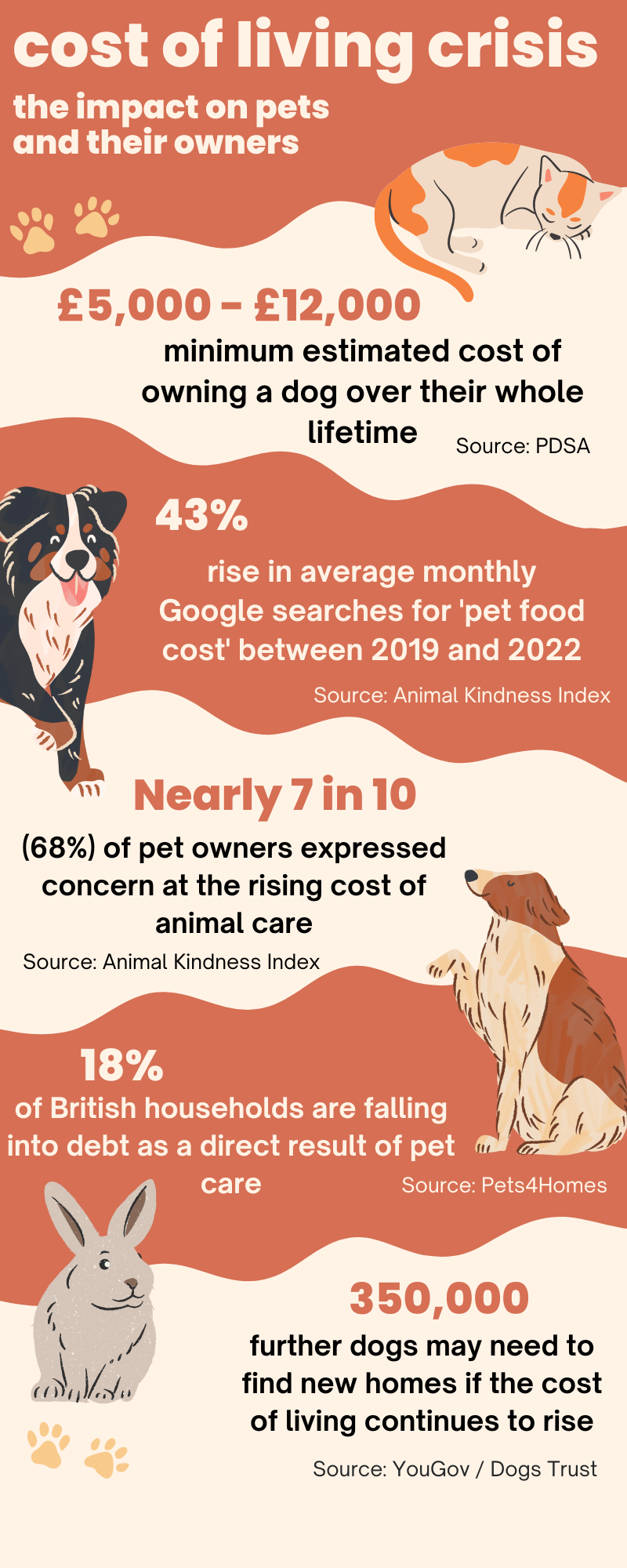
The average stay for a dog in RSPCA care increased from 85 days in 2020 to 93 days in 2021, while the average stay for rabbits rose from 104 days to 117 days.
Charities such as the Blue Cross have set up pet food banks across the country to prevent pets from going hungry and also offer free or reduced-cost veterinary care for those on low incomes.
But as the cost-of-living crisis continues to bite, more and more families will have to face tough decisions about their pets in the coming months.
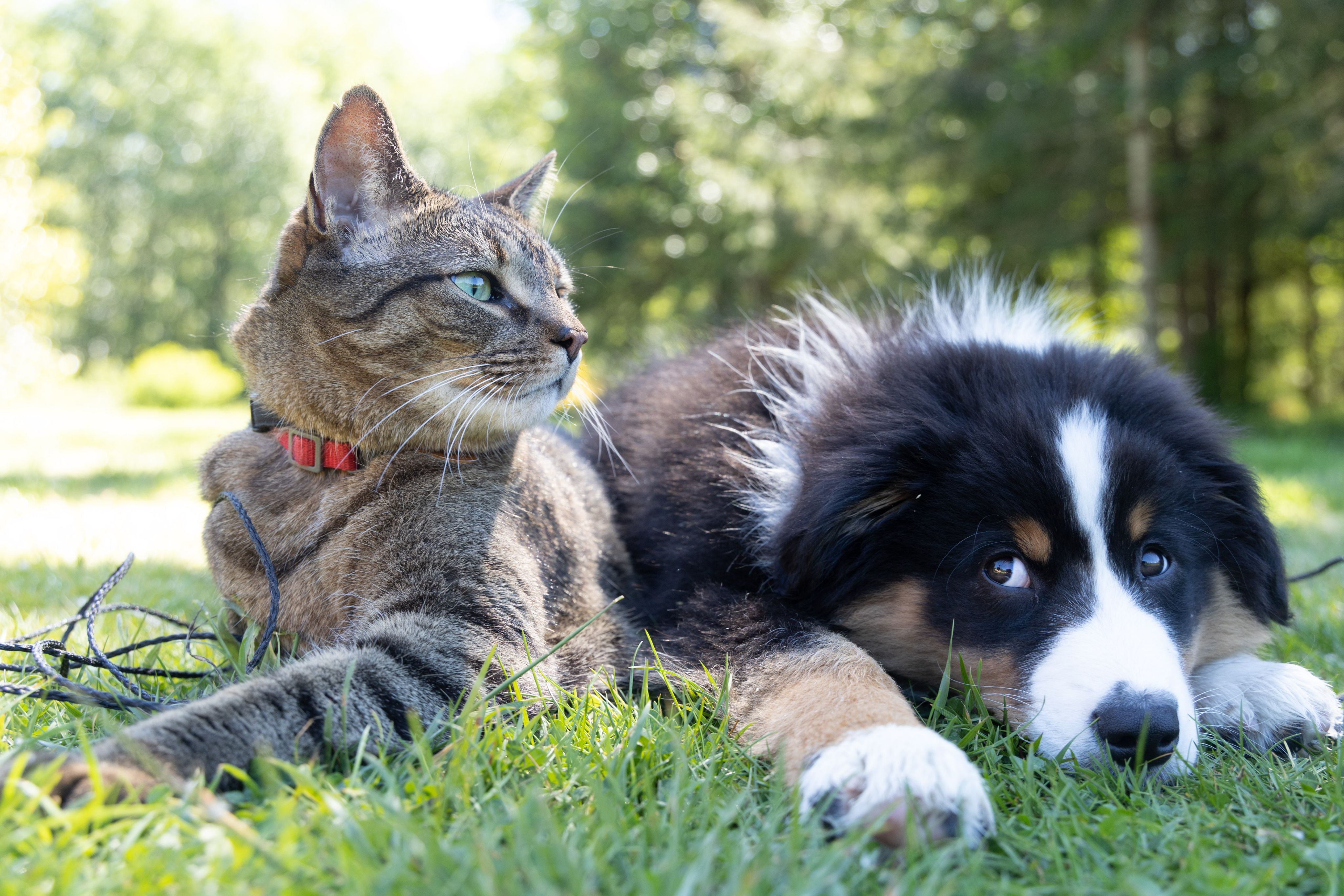
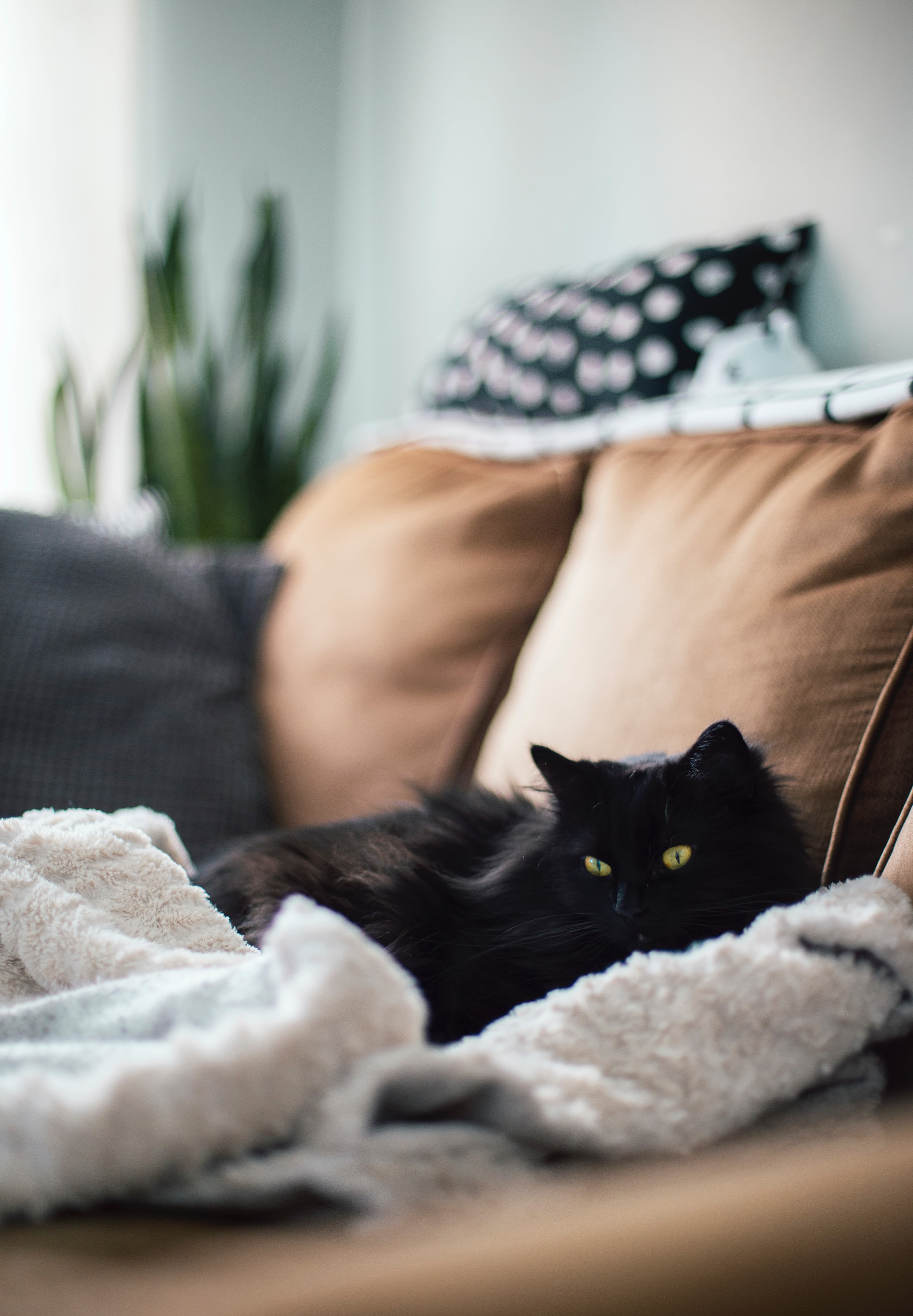
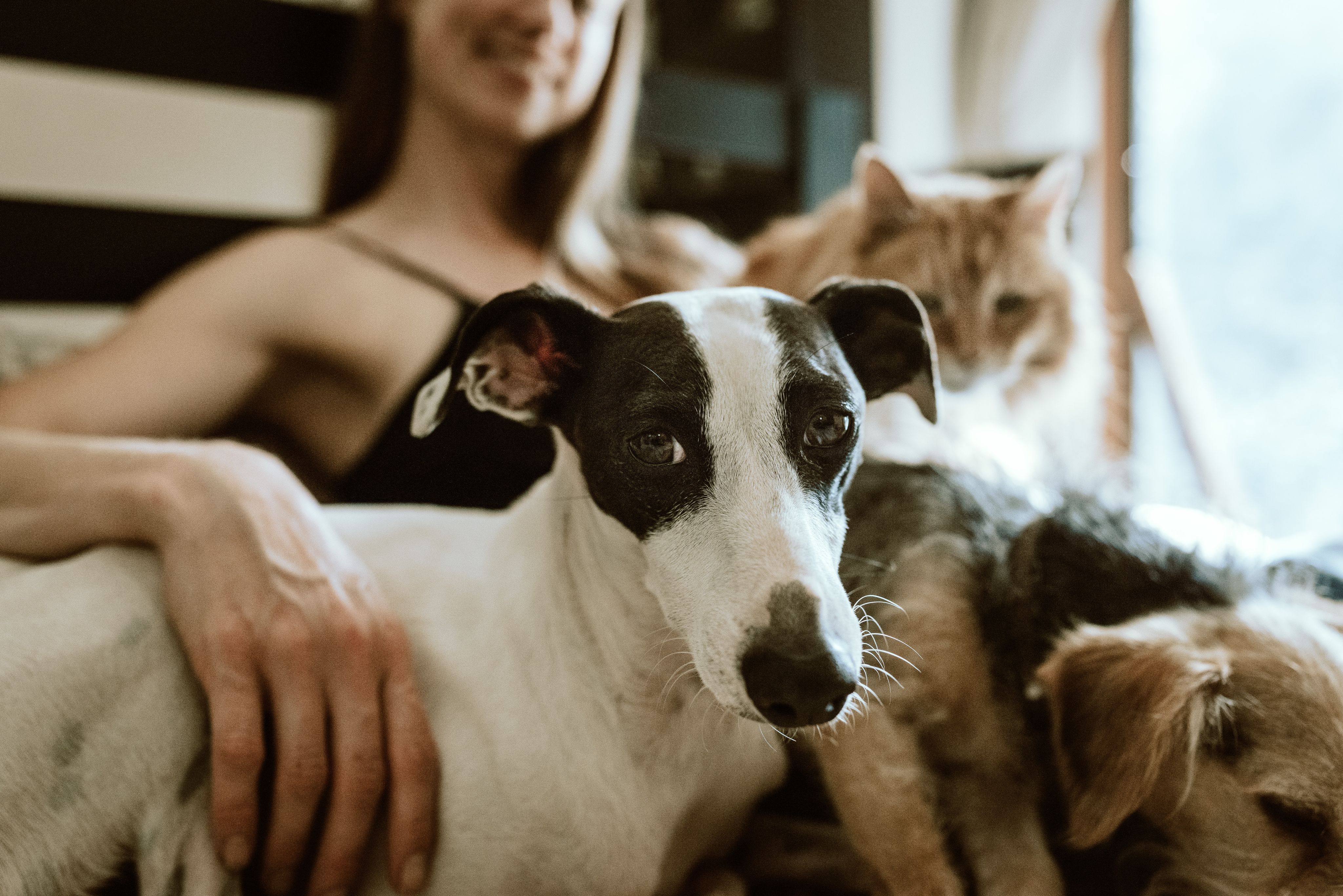
How are animal rescue charities coping?
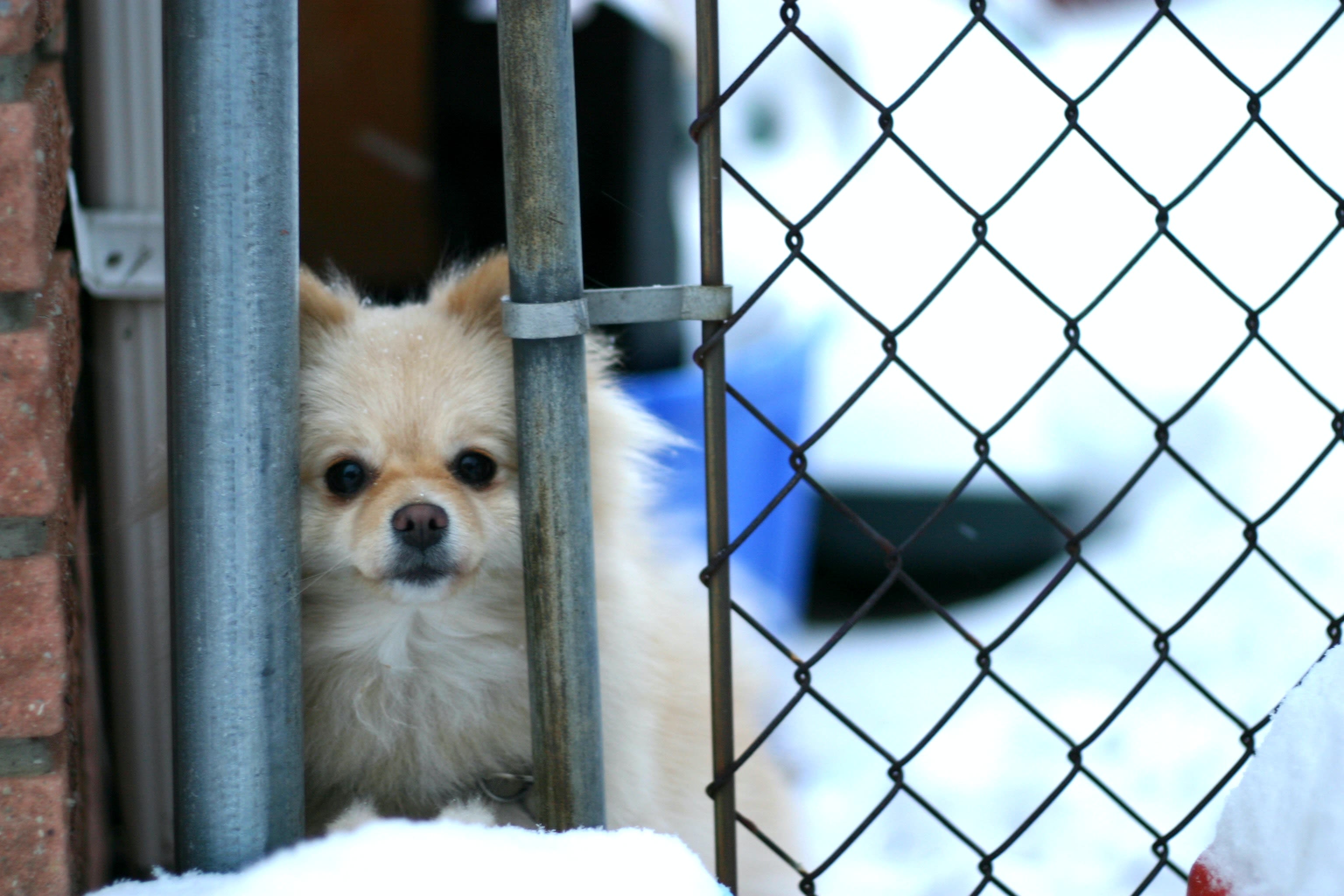
JACQUI JACKSON
Branch Manager of RSPCA Croydon
“You get people on the phone in tears all the time just desperate to find a home for their pet when they haven’t got a home to go to themselves.”
Jacqui’s animal rescue centre was severely impacted by rising living costs over the summer and is bracing itself for the effects of the looming recession.
She said: “Summer is always the worst time for us, but this summer was really bad.
“We had people calling every day saying they had cats, rabbits, dogs to give up. It was really heartbreaking.”
Enquiries from people unable to afford costs such as vet bills and pet food have soared in recent months and the surge shows no signs of abating.
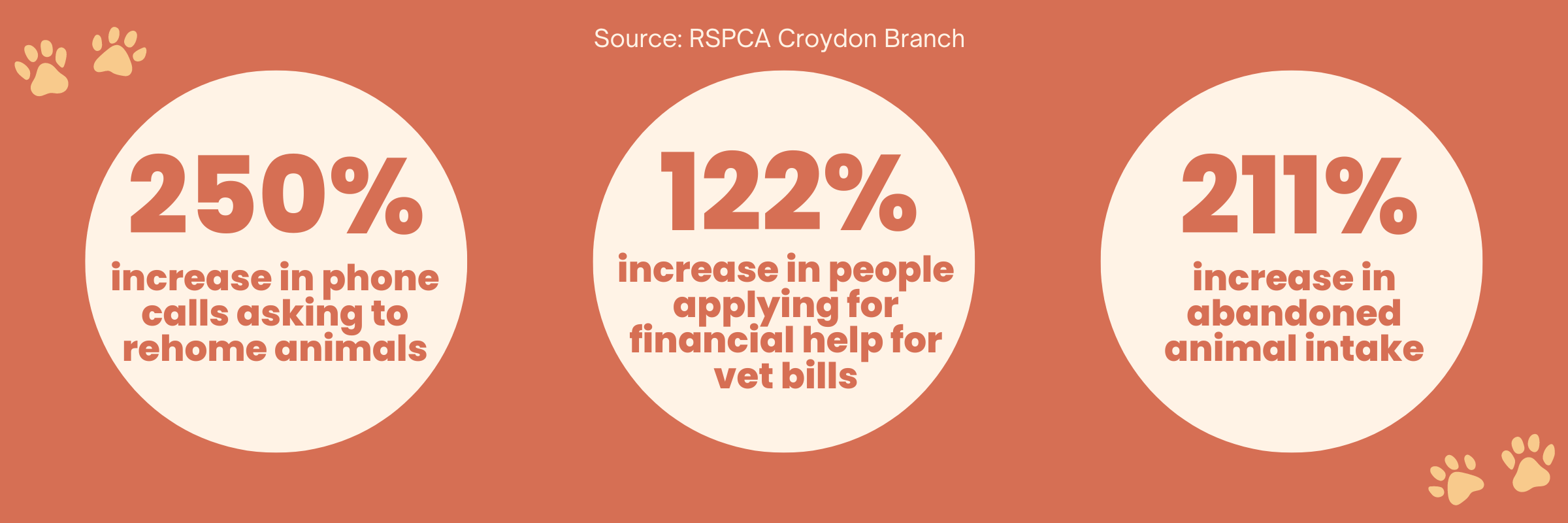
“The majority of people who get in touch with us aren’t on benefits - they’re in work and they just can’t afford things anymore,” Jacqui said.
The centre remains at capacity and still has to turn many pet owners away.
Jacqui and her team are already feeling the pressure of this rise in demand, but a perfect storm of external factors is also significantly limiting their capacity to help.
Due to the post-Brexit exodus of European workers, the RSPCA is facing reduced vet availability and rising veterinary costs.
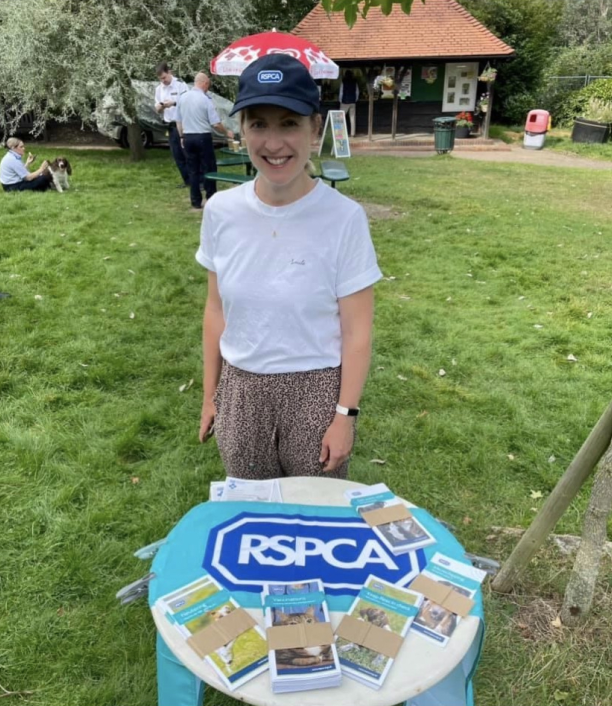
Jacqui Jackson working at an RSPCA event
Jacqui Jackson working at an RSPCA event

Flash and Willow
Flash and Willow
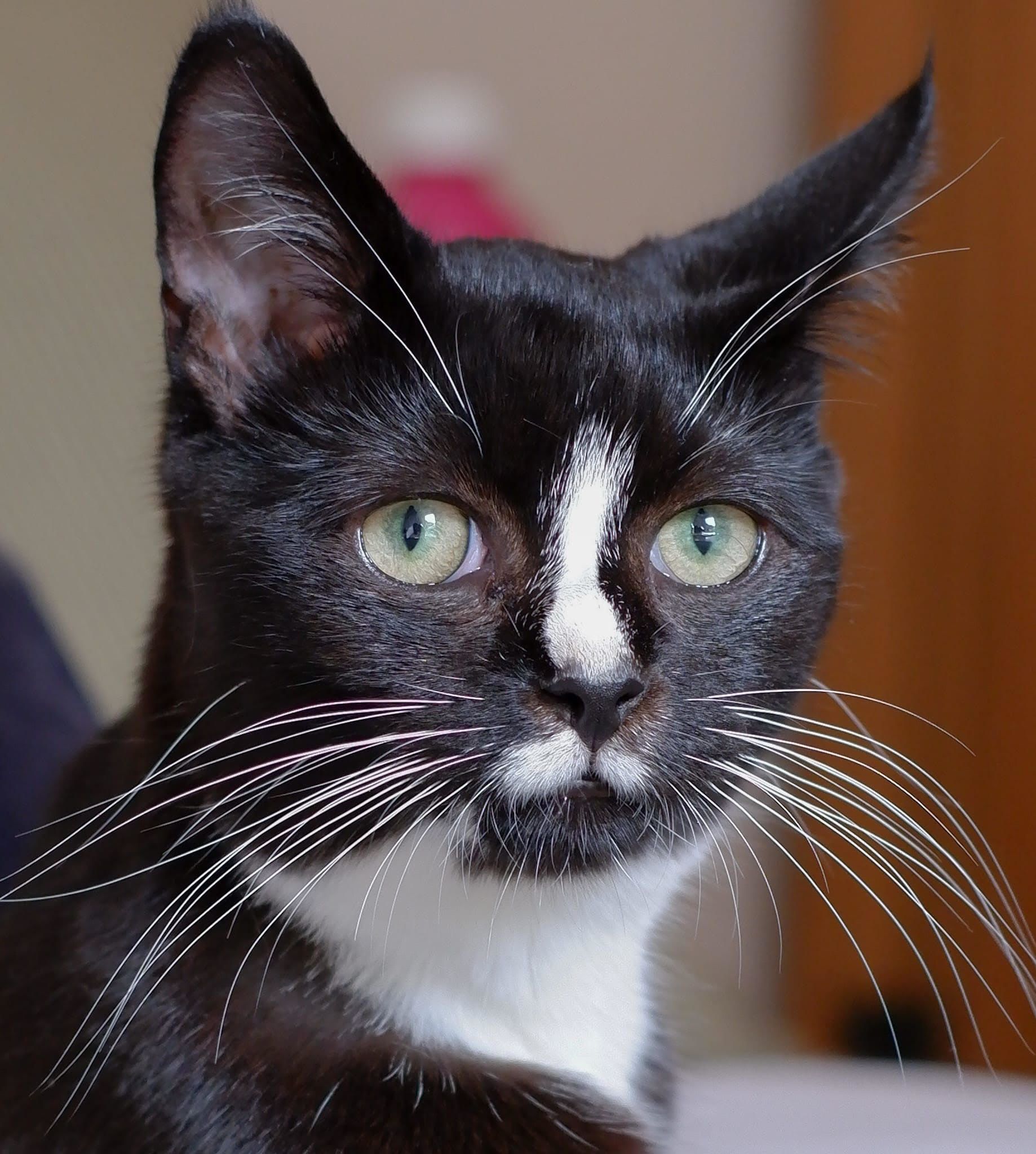
Patrick
Patrick
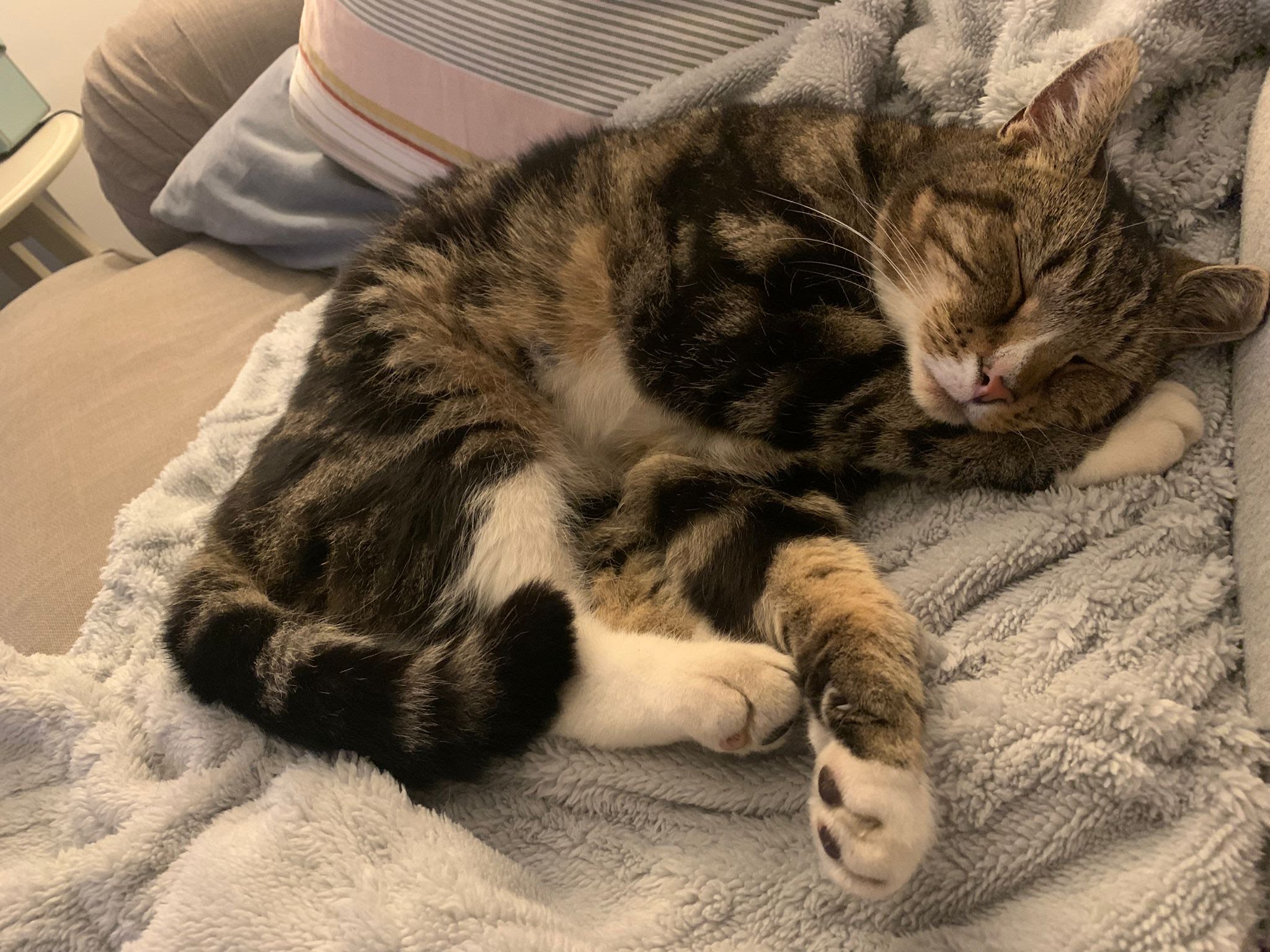
Spencer
Spencer
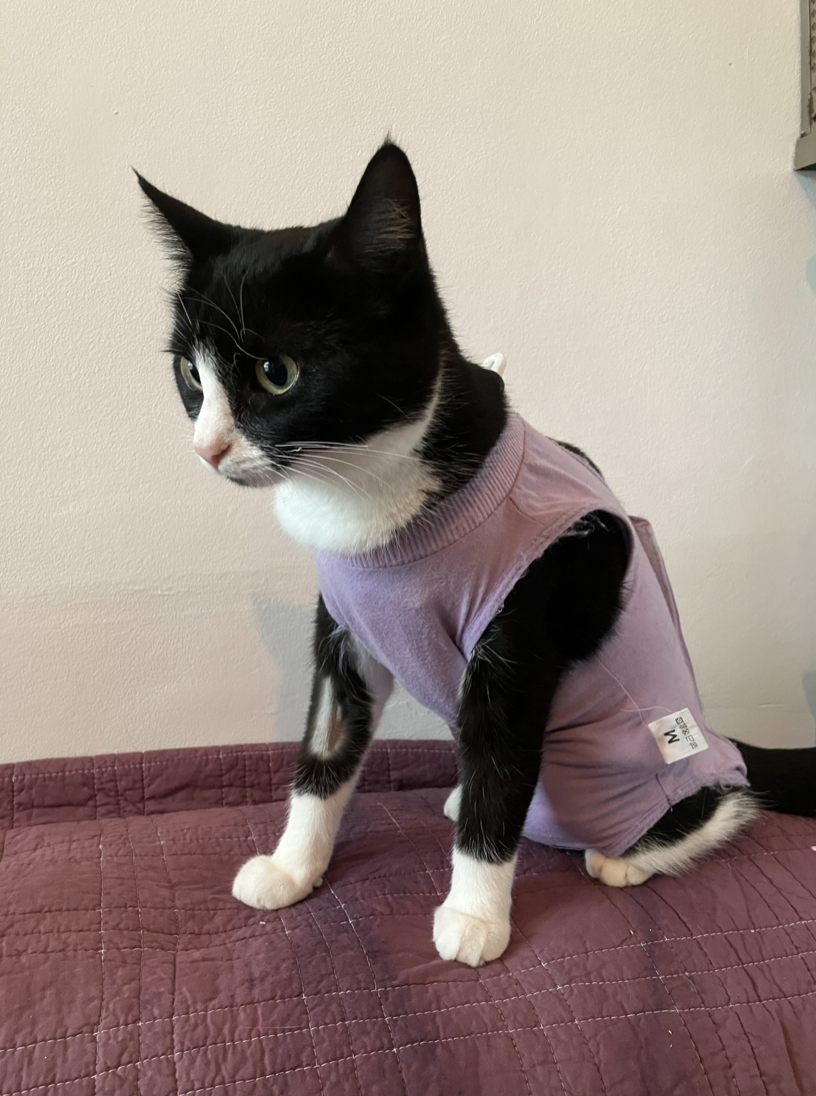
Pepper
Pepper
They have also lost many volunteer fosterers as life has returned to normal post-pandemic and are finding it hard to recruit replacements due to the harsh economic climate.
Jacqui added: “We are also really struggling with energy bills.
“Our main income comes from our three charity shops, and all of the energy bills have gone up around 200%.”
She believes the easing of COVID-19 restrictions and the current economic downturn has also led to a slow-down in rehoming enquiries.
“During lockdown we were getting through so many [rehomings].
“Everyone was absolutely desperate to have cats at home with them, but now it is taking a lot longer.”
For Jacqui’s team, it has been difficult to witness first-hand the human cost of this crisis.
Many people have been forced to give up their pets as they have faced eviction for falling behind on rent and mortgage payments.
Jacqui said: “You get people on the phone in tears all the time just desperate to find a home for their pet when they haven’t got a home to go to themselves.
“It is just so sad that people are in these situations and there is just no help for them at all. I don’t see it getting any better for a long time.”
She urges any pet owners that are struggling to listen to her advice:
Victoria Patterson
Trustee at Animal Rescue and Care, South West London
“People are worried about jobs, so fewer people are looking at adopting animals - there’s a lot of uncertainty around.”
During her four months as a trustee, Victoria has seen the charity’s resources stretched further and further.
Animal Rescue and Care work mainly with smaller animals, including cats, rats, mice and reptiles.
The organisation is made up of a network of volunteer fosterers who look after pets until they are found a permanent home.
Like many other animal charities, they have also been impacted by both a rise in enquiries about giving up pets and a fall in rehoming demand.
Victoria said: “Some of the abandonments and phone calls we are getting are just people who are worried they are not going to be able to afford their animals.
“People are worried about jobs, so fewer people are looking at adopting animals - there’s a lot of uncertainty around.”
Victoria herself has fostered a cat, Moo-Moo, after his previous owner lost her job and was evicted from her home.
“Stories like [Moo-Moo’s] are becoming more and more common,” she added.

Victoria Patterson
Victoria Patterson
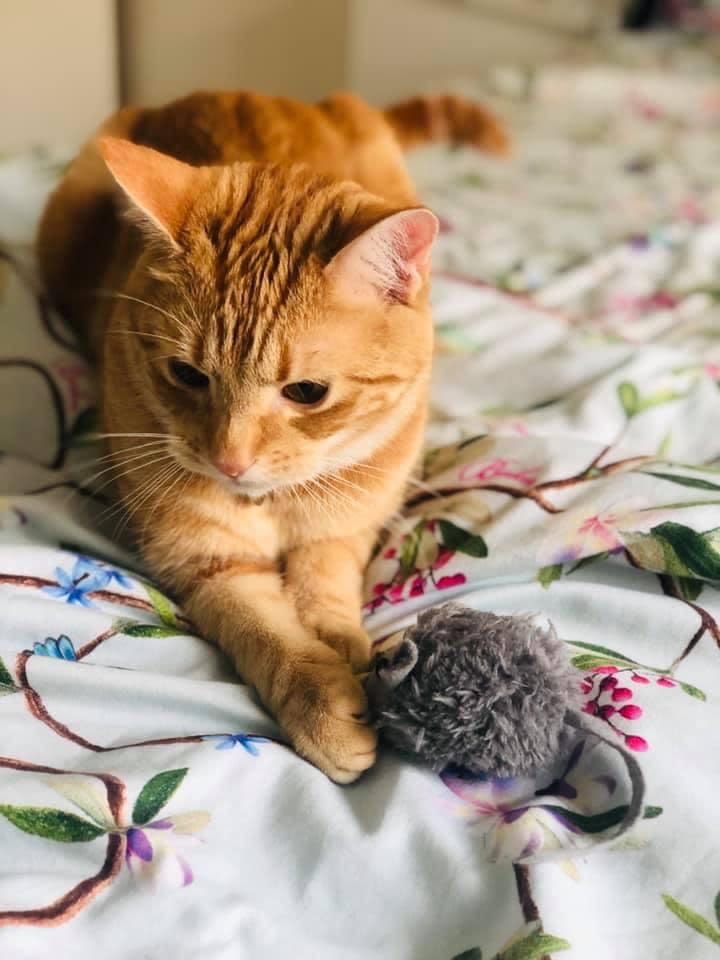
ARC rehomes a wide variety of animals, including cats...
ARC rehomes a wide variety of animals, including cats...
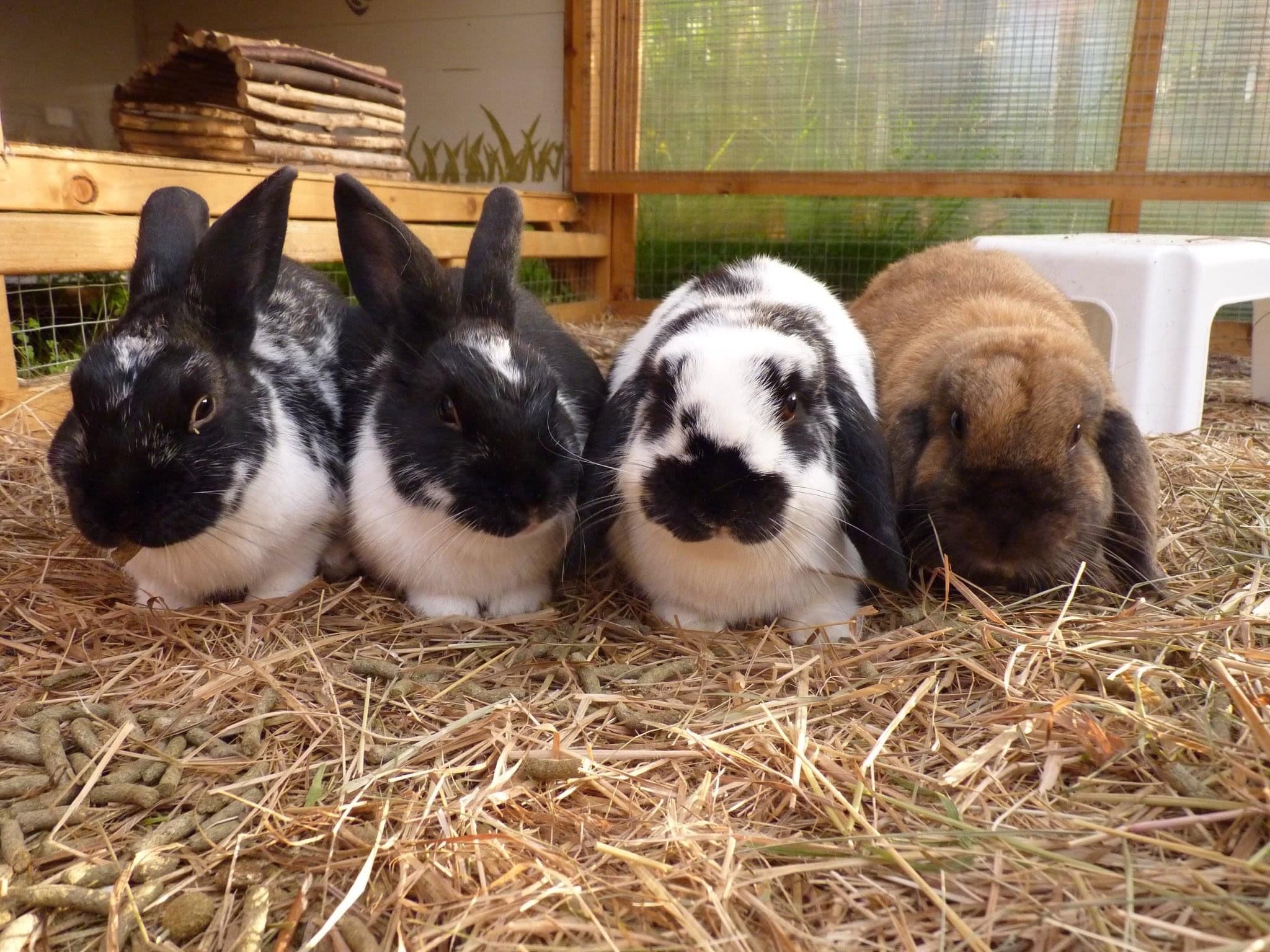
...rabbits...
...rabbits...
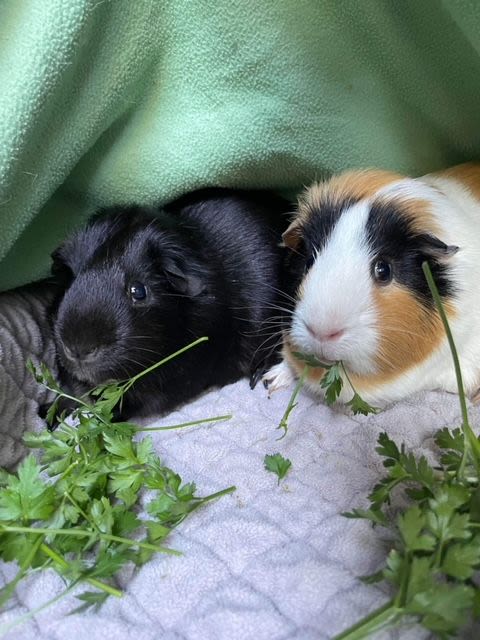
...guinea pigs...
...guinea pigs...
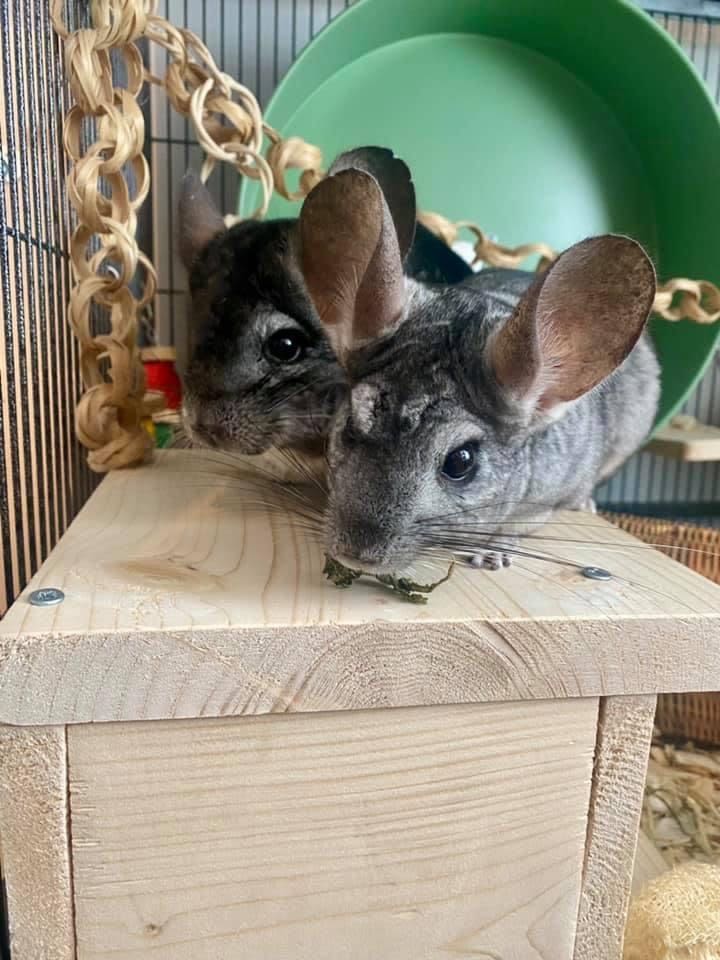
...chinchillas...
...chinchillas...
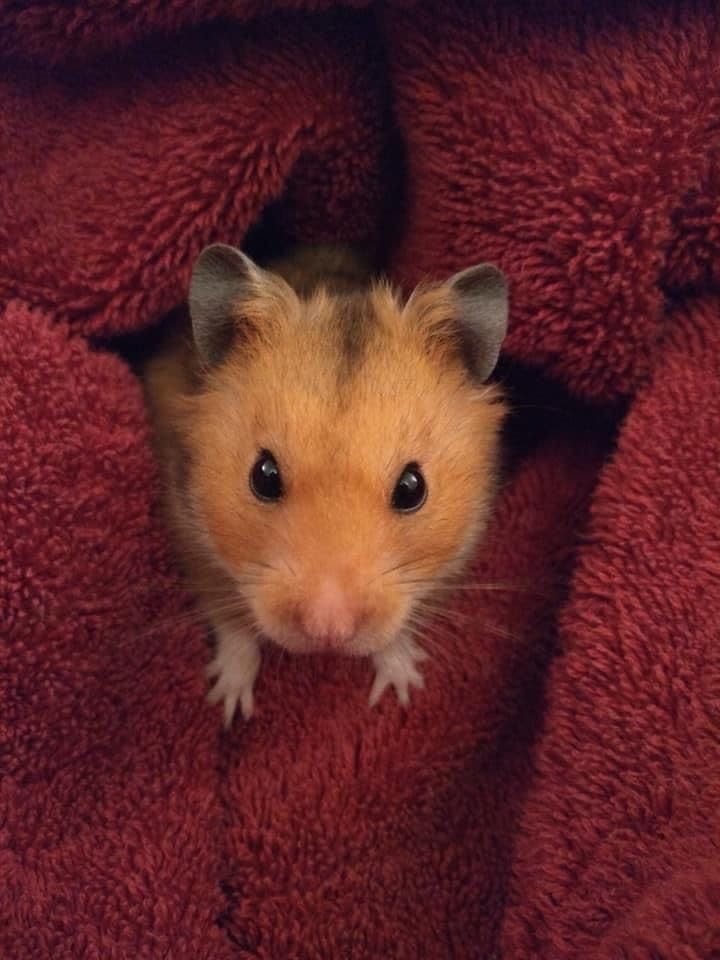
...hamsters...
...hamsters...
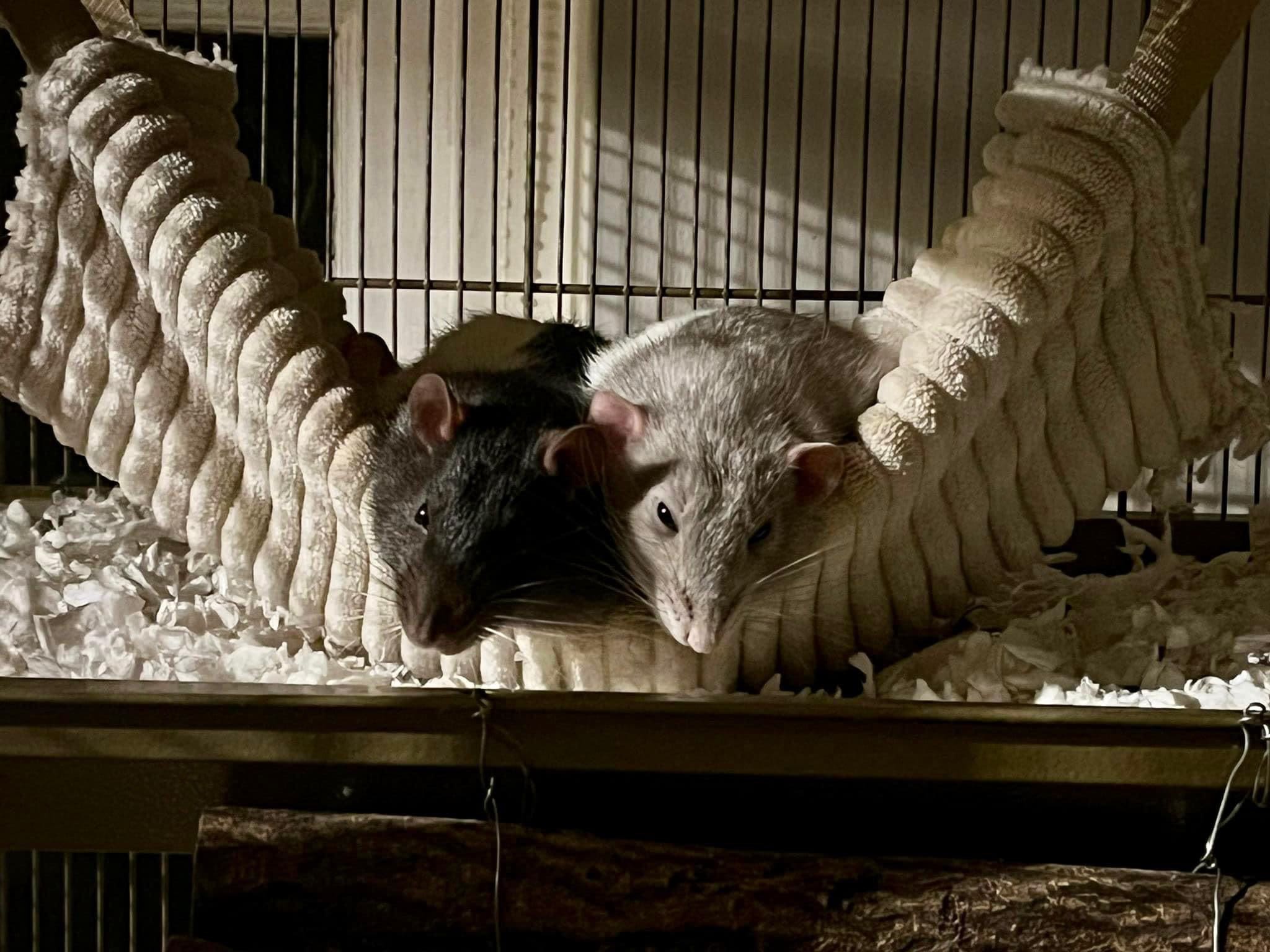
...and even rats.
...and even rats.
Rising costs and a surge in incoming pets are also taking a toll on the organisation’s finances - in October, their veterinary bill exceeded the donations they received for the first time in three years.
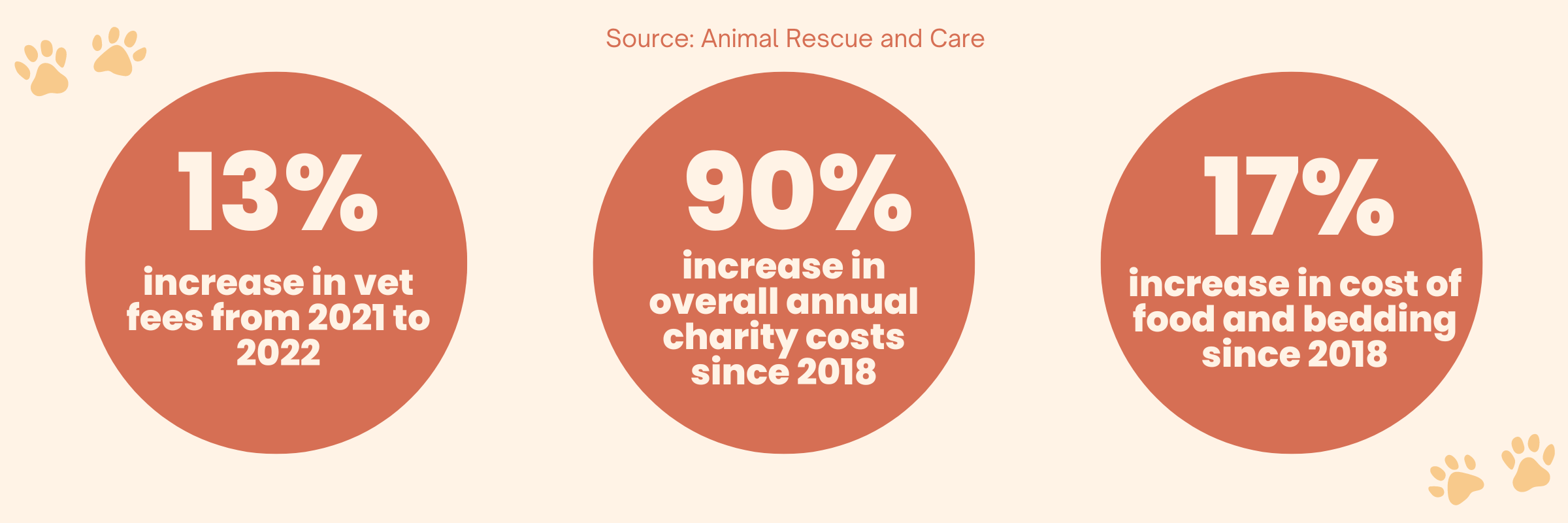
Victoria worries about the problems this could cause for the charity’s group of fosterers, many of whom cover pet care costs themselves.
She said: “It can be a big strain on people. There’s the mental well-being side of this [...] but then there’s the financial side.
“Because of the cost of heating and electricity, we also believe that we are going to start to see an increase in people with reptiles.
“Obviously, vivariums and habitats cost quite a lot of money to heat, so we’ve already started to talk to some of our previous [reptile] fosterers [...] and we are just trying to prepare as best we can.”
Some of the charity’s significant donors have increased their contributions to help cover the shortfall in fundraising, but Victoria remains concerned about the recession that lies ahead.
“Although we are already starting to see these rises, we do feel it is going to be the new year when we start to feel the pinch,” she said.
She also pushed for the government to step up their response to the crisis:
How are pet owners themselves coping?
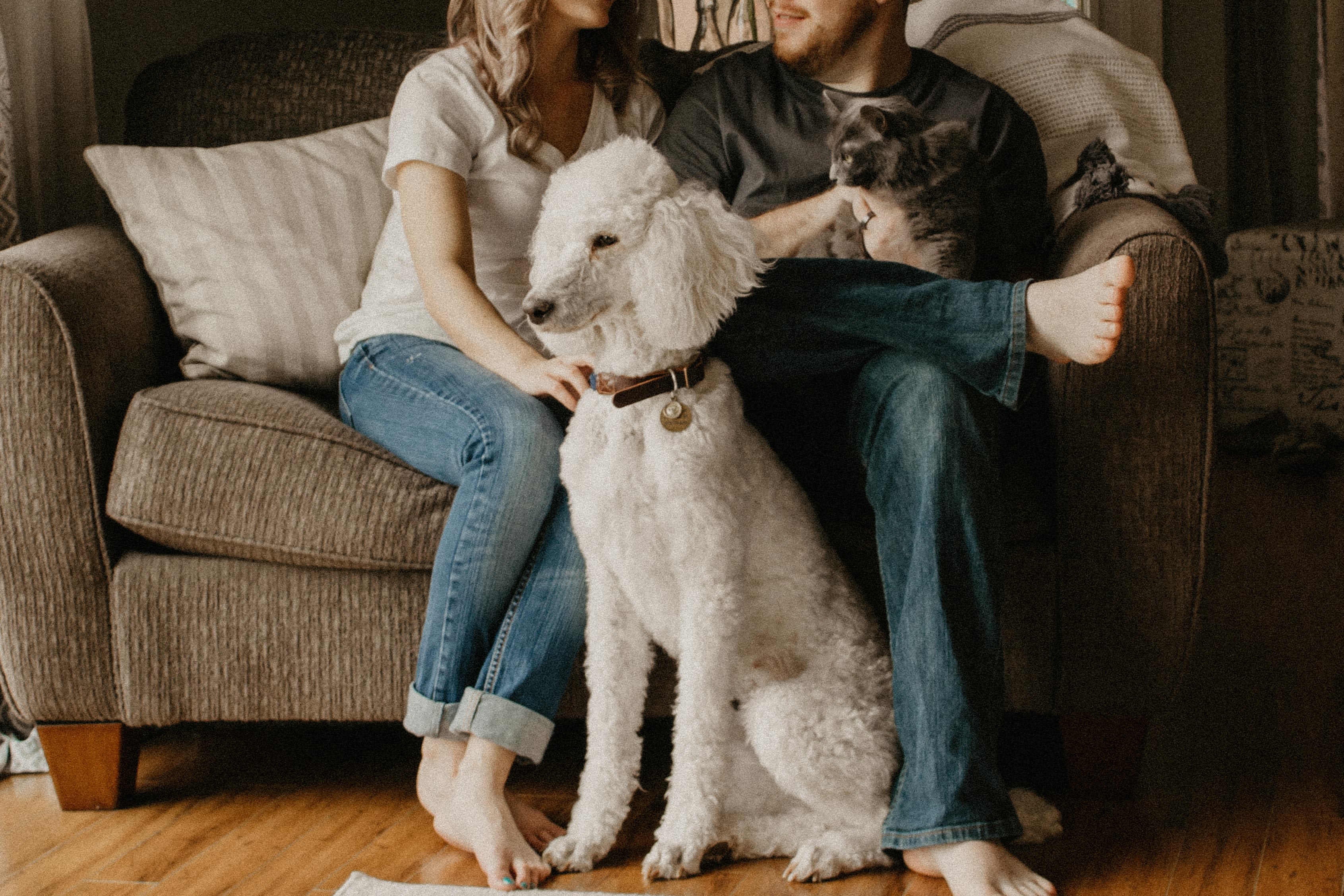
HARRIET PARK
22, Cumbria
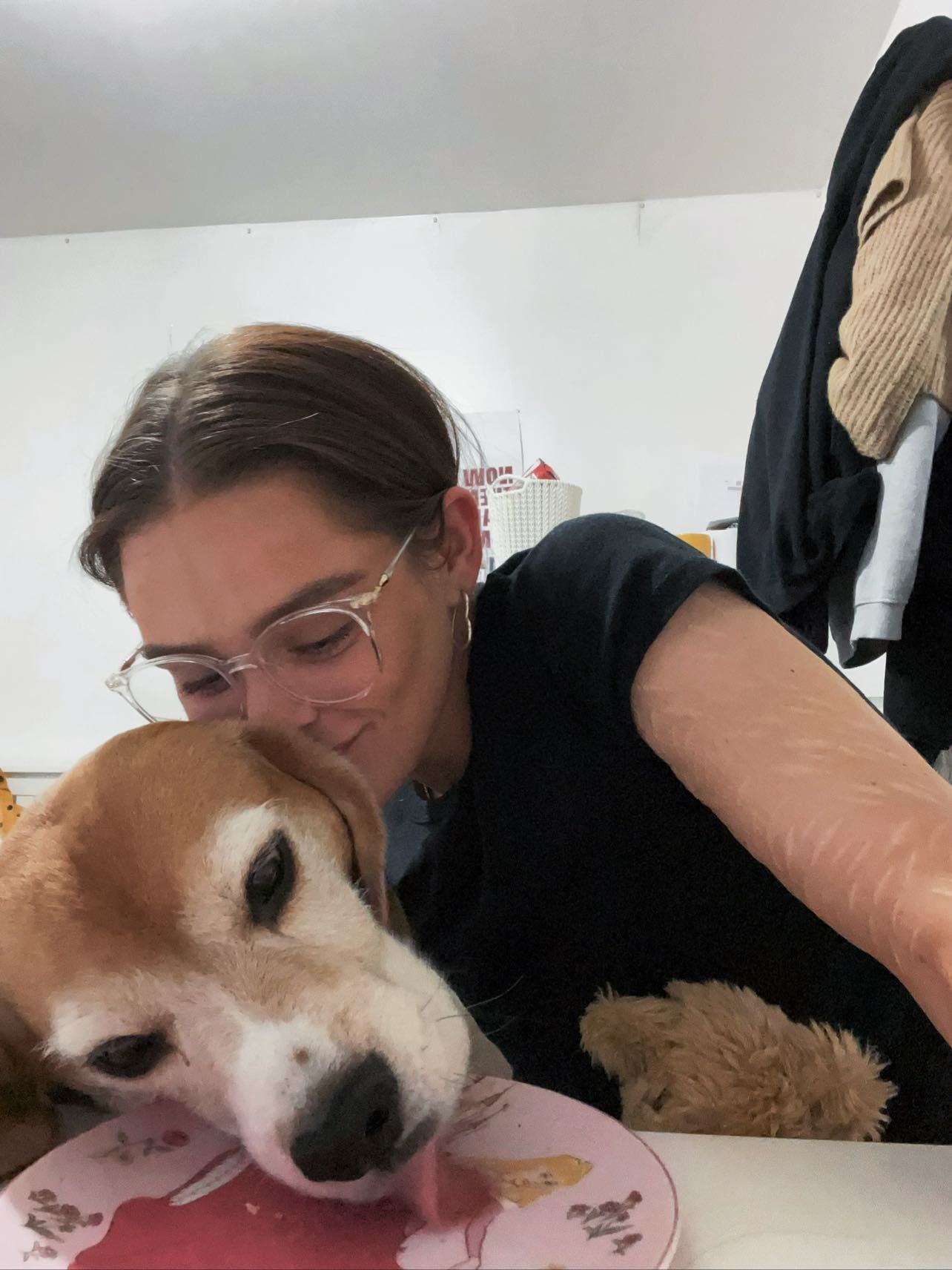
Harriet with her beagle Buster
Harriet with her beagle Buster
Harriet was made redundant in October due to the cost-of-living crisis and has since found caring for her 9-year-old beagle Buster increasingly unaffordable.
After rescuing him in December 2019, Harriet discovered that Buster suffers from epilepsy, a chronic condition that causes potentially-fatal cluster seizures and has no cure.
The cost of his prescription, pet insurance and mandatory monthly check-up at the vet have sky-rocketed in recent months.
Harriet faced further costs when Buster’s sock-eating habit required him to have three increasingly complicated — and expensive — surgeries.
She was forced to turn to her parents for help when her insurance company threatened to cancel her policy for missing a payment.
“When I got him in 2019, I wasn’t looking three years down the line thinking there was going to be an unprecedented cost-of-living crisis,” she said.
The growing financial burden of looking after Buster has also caused tension and upset at home.
Harriet said: “There’s been a lot of tears, a lot of stress and quite a lot of arguing.
“If I can’t financially take care of him and give him everything that he needs, he’ll have no quality of life and he’ll get really poorly.
“It’s not fair on him, but also there’s the stress that’s on us as well.”
As bills continue to pile up, Harriet has grappled with the idea of returning Buster to a rescue shelter.
“I had to have a really awful conversation with my boyfriend where I said ‘I don’t know what to do, I feel like I’m going to have to get rid of him.’
“It’s been horrible, I remember there were mornings where I would wake up and look at him and think ‘is this the last morning I’m going to wake up to you?’”
She called various local shelters but was told they were at capacity. One shelter told her that enquiries about giving up pets had increased from 50 to 250 a month.
Her vet advised her that if Buster’s health were to deteriorate further, he would likely be unable to find a new home and could have to be put down.
“It’s made me really sick with the stress of it all.
“To have a conversation with the vet about having to put your dog down - it’s soul destroying. But to have that conversation off the back of a financial situation is ten times worse.”

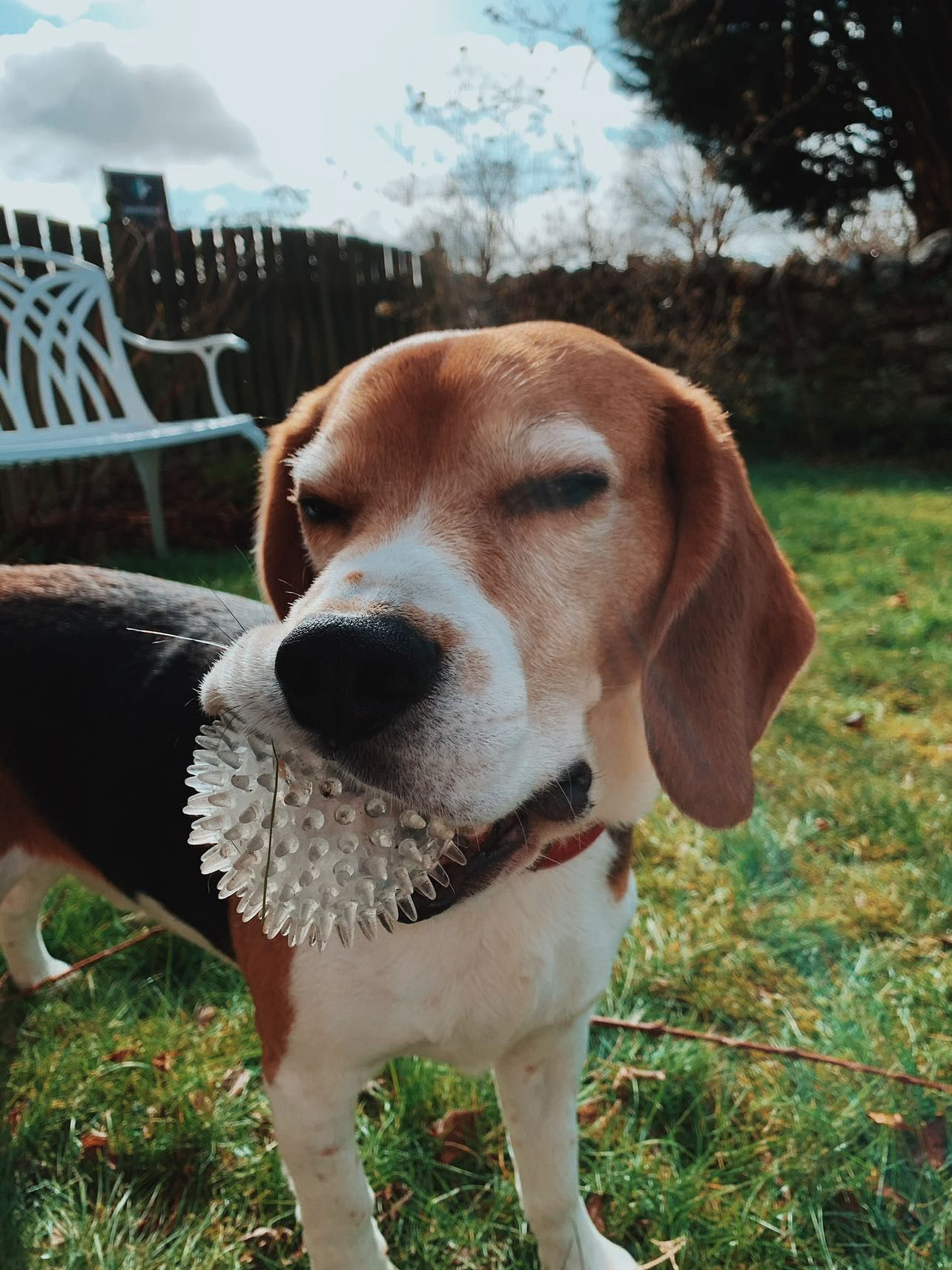

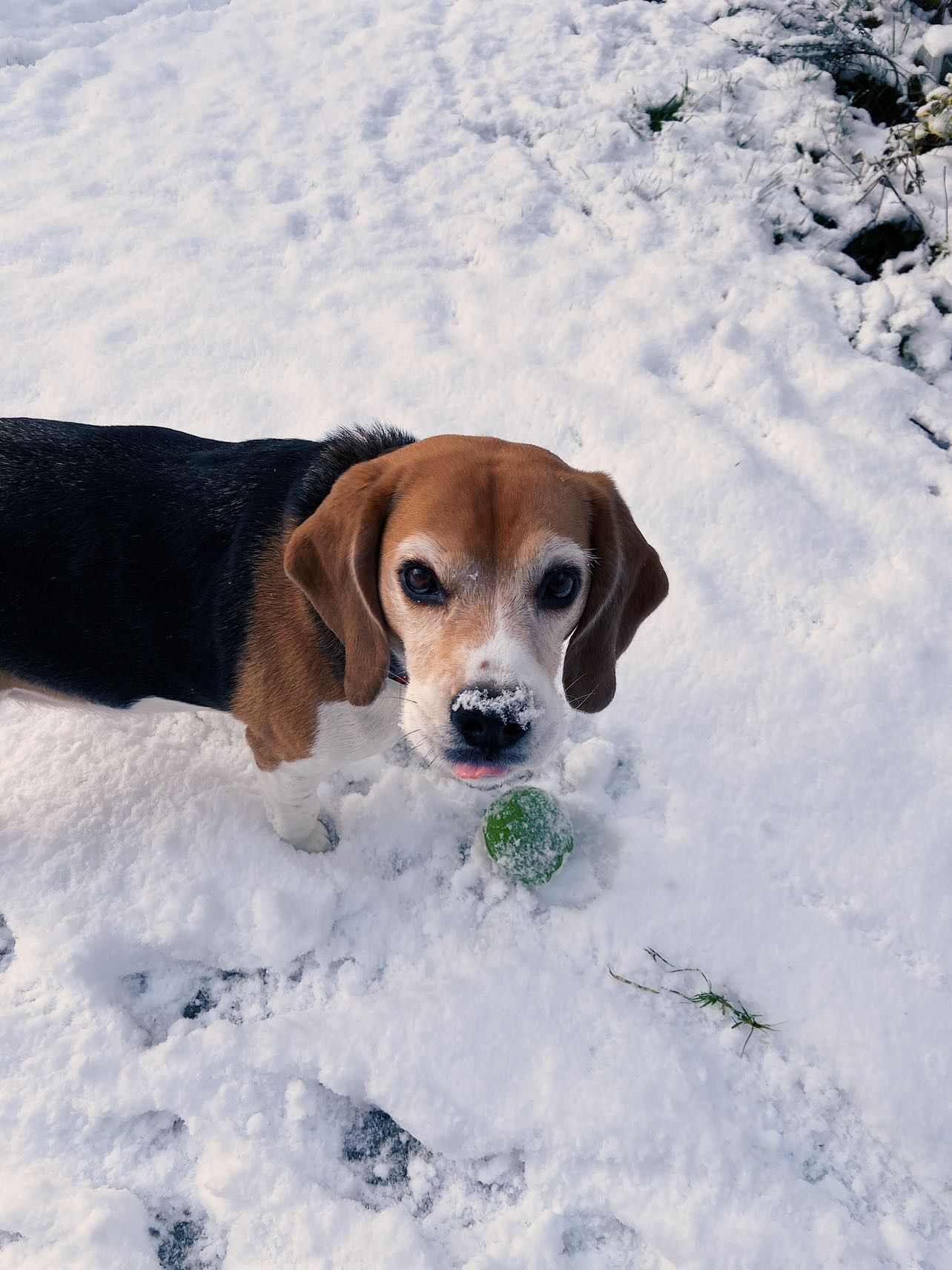
Kaitlin Bowen
27, Chartered Accountant, Worcestershire

Kaitlin with her cocker spaniel Luna
Kaitlin with her cocker spaniel Luna
Kaitlin works full-time and lives alone, meaning she relies on a single salary to support herself and her cocker spaniel Luna.
Since adopting Luna as a puppy in August 2021, rising pet-care costs have made it increasingly difficult for Kaitlin to provide for her.
Kaitlin has not received a pay rise since the cost-of-living crisis began and is struggling to make her salary stretch far enough as food costs and mortgage rates continue to soar.
She said: “Recently I’ve been saying to a lot of people that I don’t eat because I need to feed the dog first.
“I do things that I know will cut costs for myself so I can make sure she’s alright. She can’t fend for herself, I have to put her first.”
She initially adopted Luna to help improve her mental health, but the financial strain of taking care of her has started to take an emotional toll.
“It is definitely got to the point where you have to sit back and think if it’s fair for her,” she said.
“If costs go up too much, I can’t stop looking after myself, I need to be paying my bills. I don’t want to part with her, but it’s really expensive.”
As the festive period approaches, Kaitlin worries that the financial pressure will become even harder to bear.
“I live to my means each month, I put no money away in savings anymore. It’s going to be tight over Christmas and New Year.”
Although Kaitlin is still able to make ends meet for the moment, she fears that others like her will be forced into giving up their pets during the winter.
“These people that are having to get to that point don’t really want to [give them up] - but it’s out of desperation, isn’t it? It makes me feel very sad for them.”
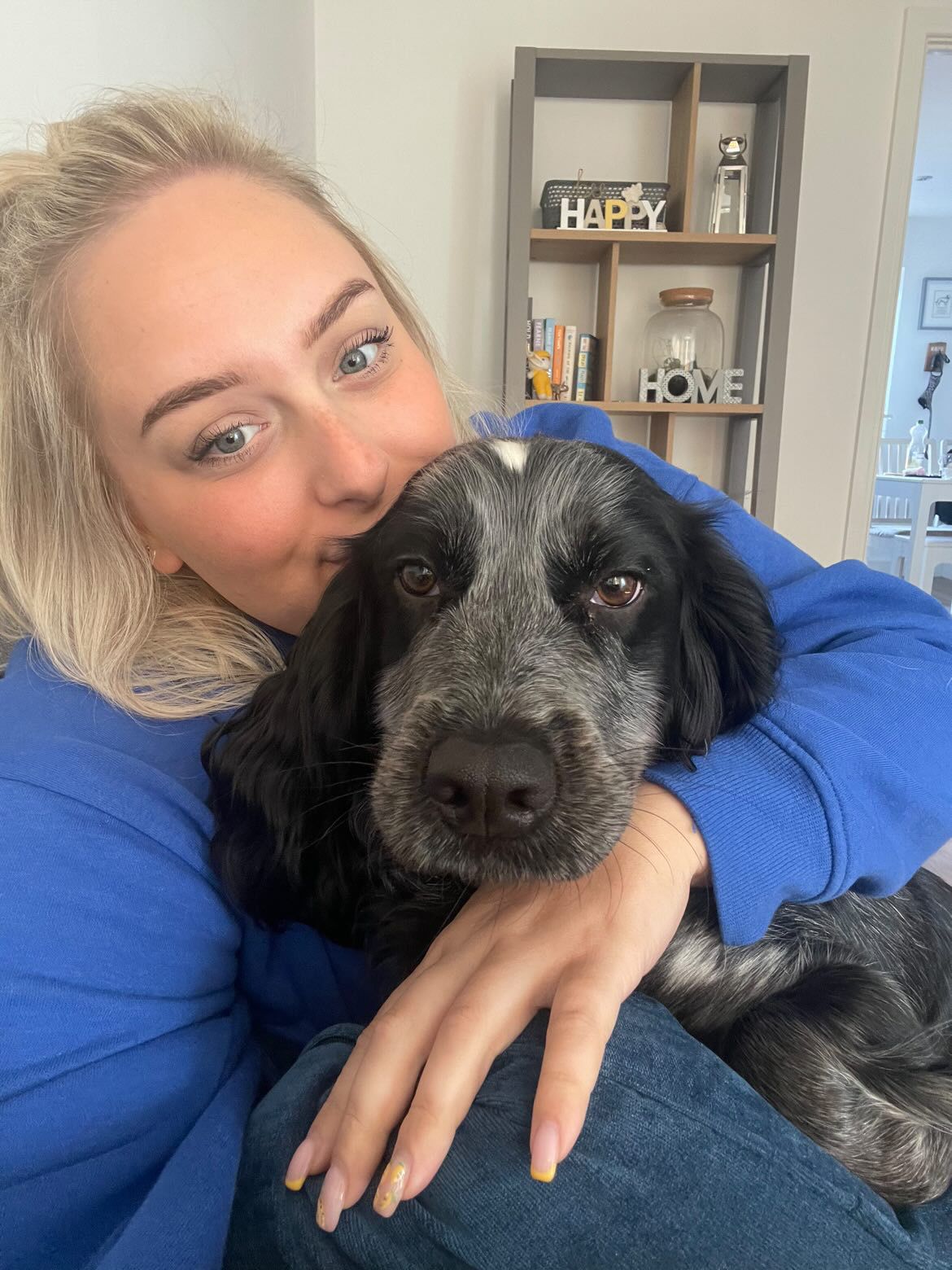

What's next?
As the UK economy starts to shrink and recession looms, rates of animal abandonment are expected to rise even further.
“It’s going to get worse before it gets better,” says Patterson.
“I think we are seeing the early fallout from the cost of living increasing, but with the recession that is coming there is going to be more and more job losses which will definitely lead to further abandonment.”
There are growing calls for urgent government action to prevent the current situation from spiralling into a full-scale animal welfare crisis.
In November, animal welfare charity Dogs Trust wrote to the Chancellor of the Exchequer asking the government to remove VAT from pet food.
Dominic Dyer, a leading campaigner for animal welfare, has launched a petition calling for ministers to set up a Cost of Living Animal Welfare Crisis Fund.
The petition, which has reached 4,500 signatures, warns that without government intervention more pets could be euthanised on economic grounds in the coming year than in the pet cull at the start of WWII.
The Crisis Fund would use taxpayer cash to fund a network of pet food banks, free veterinary care for pets of the homeless and fast-track visas for non-UK vets and vet nurses.
Charities are urging pet owners to seek help if they are struggling to afford their animals over the coming months.
If you are concerned about pet care costs, helpful resources are linked below.
Useful Resources:
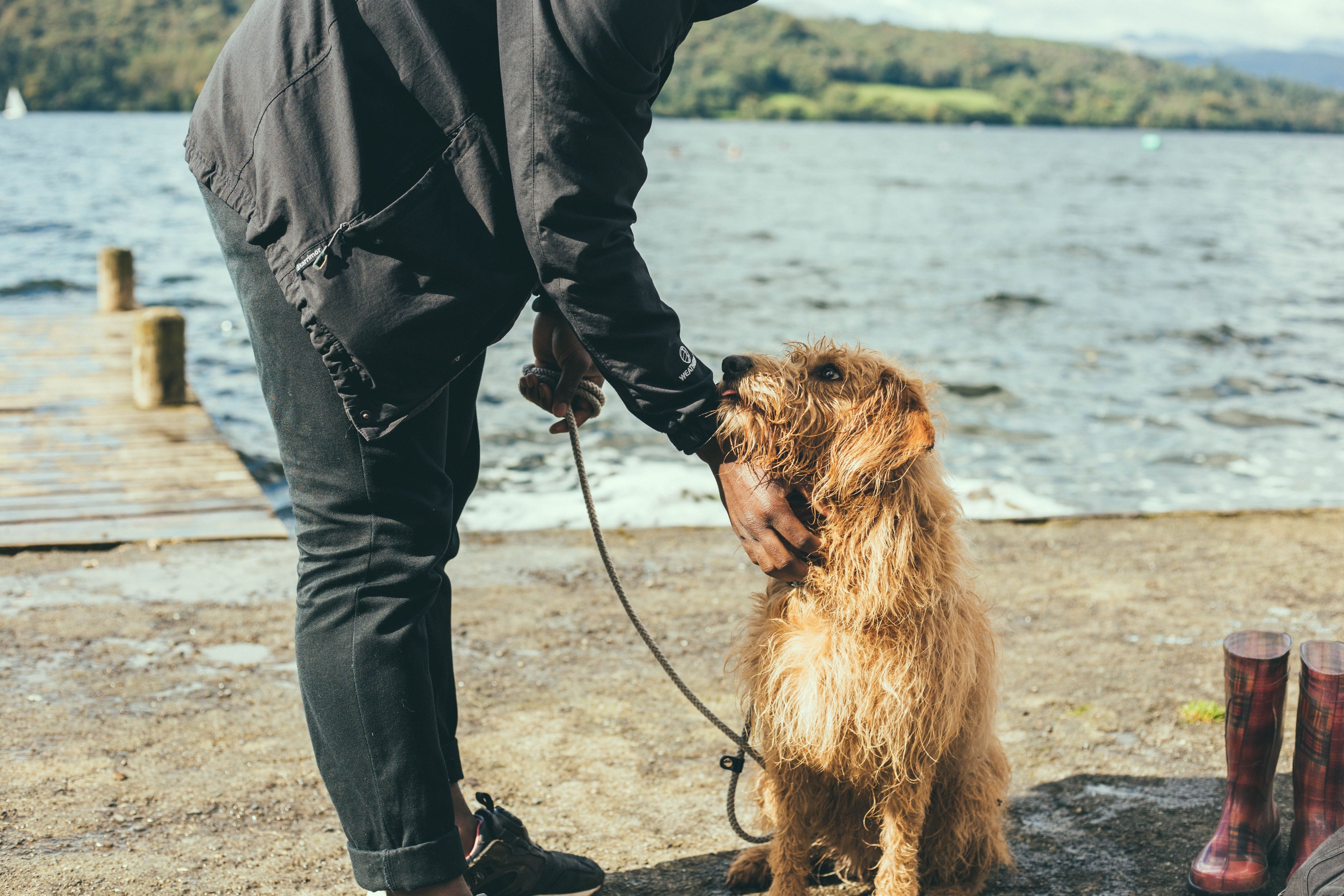
Image Credit: Joseph Pearson on Unsplash
Image Credit: Joseph Pearson on Unsplash
RSPCA Advice
The RSPCA website has a bank of resources and advice for pet owners struggling with rising costs.
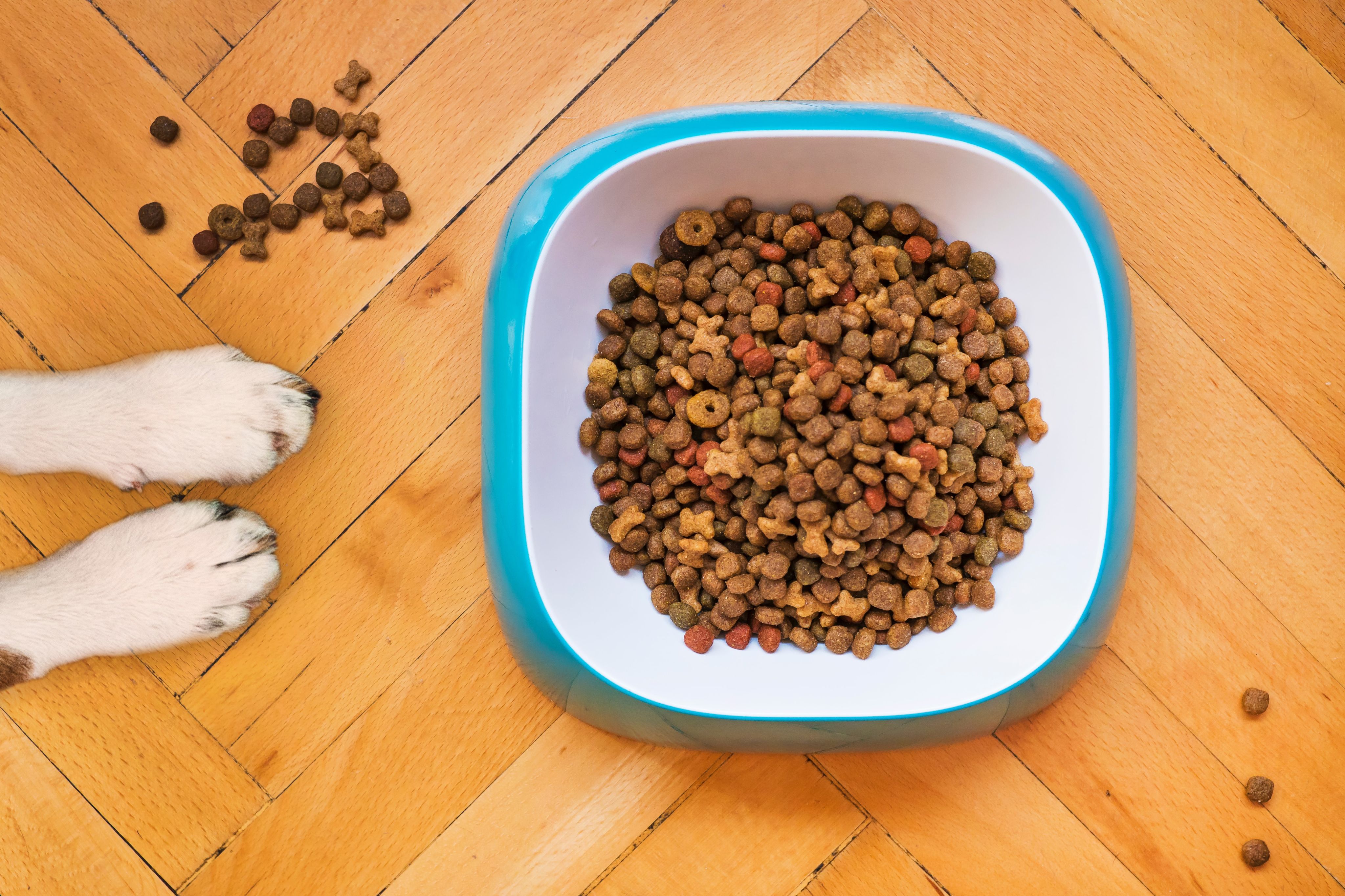
Image Credit: Mathew Coulton on Unsplash
Image Credit: Mathew Coulton on Unsplash
Blue Cross Pet Food Banks
The Blue Cross run pet food banks across the UK which are free and available to all.

Image Credit: Lorenzo Hamers on Unsplash
Image Credit: Lorenzo Hamers on Unsplash
Cats Protection Advice
Cats Protection offers advice and resources to help cat owners cut pet-care costs during the cost-of-living crisis.
Image Credits:
Cover Images: Animal Rescue and Care, RSPCA Croydon, Harriet Park and Kaitlin Bowen
RSPCA Section: RSPCA Croydon
Animal Rescue and Care Section: Animal Rescue and Care
Harriet Park Section: Harriet Park
Kaitlin Bowen Section: Kaitlin Bowen
